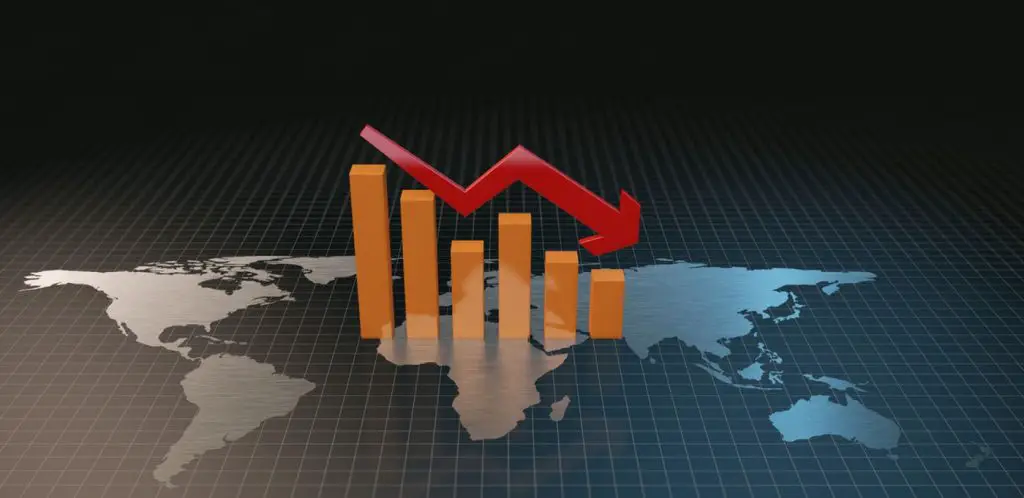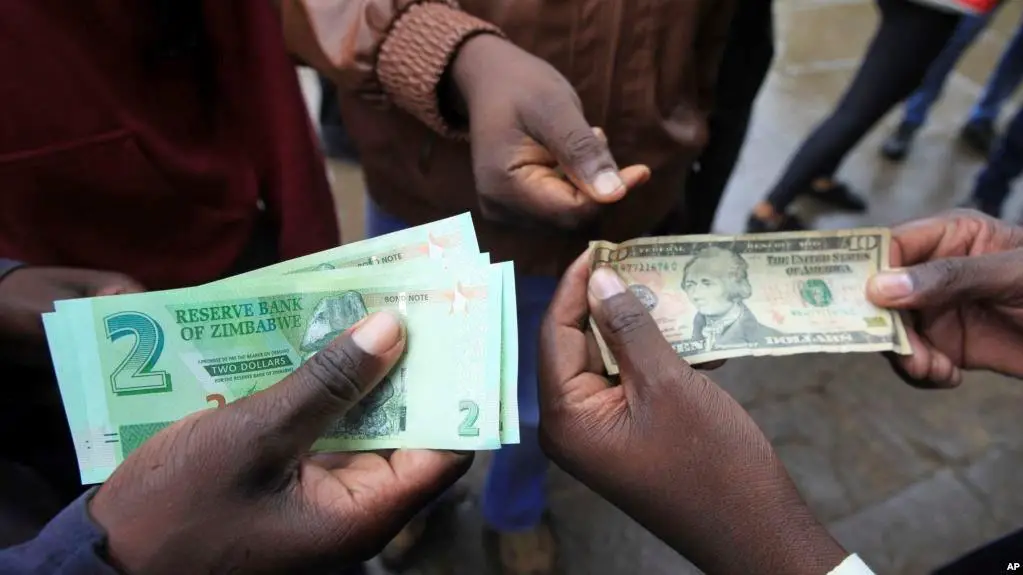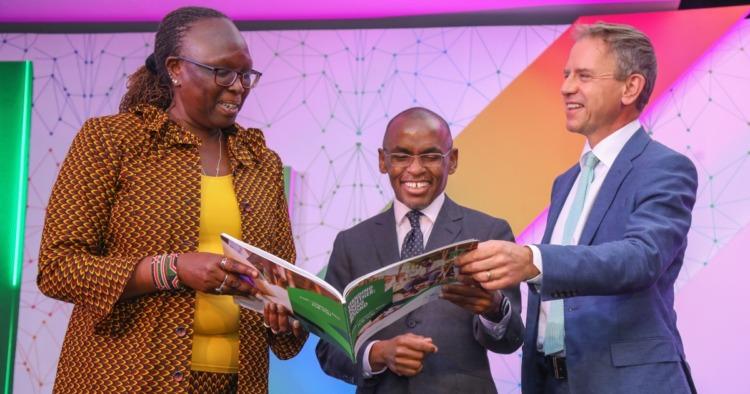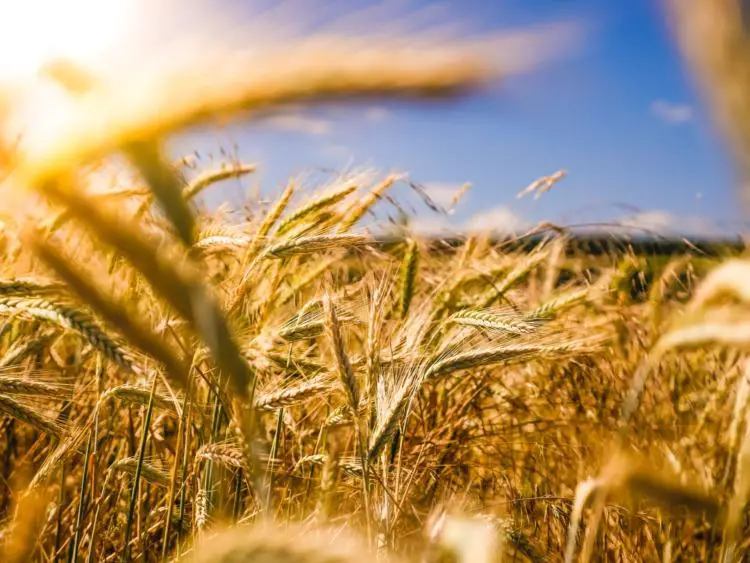- Africa’s new dawn: the rising role of digital and AI in agriculture
- Can Dangote Refinery Transform Africa Energy Ambition
- Gallup Survey: 80 per cent of Kenyan Workers Are Disengaged and Seek New Opportunities
- Madagascar Man Freed from 5KG Tumor After 15-Year Struggle
- How women in Africa are perceived and treated
- Sugar consumption in Kenya to Increase to 1.23 Million Tonnes
- Can Somalia and Turkey Oil deal Bring Change in Somaliland
- Remittances to Kenya dropped to $371.6 million in June, marking a six month low
Browsing: GDP
As the 16th president of Nigeria, Bola Ahmed Tinubu has inherited an economy grappling with record-high inflation, enduring unemployment, extreme poverty, crumbling infrastructure and high levels of insecurity. However, Nigeria’s debt situation is a sore thumb among these challenges.
Nigeria’s external debt stock stood at US$41.69 billion in 2022. Multilateral lenders accounted for almost half of this figure, with Eurobonds taking about 38 per cent of Nigeria’s external debt. China’s Exim Bank accounts for US$4.3 billion, or 86 per cent of the $5 billion in bilateral debt.…
- Kenya’s President William Ruto is urging Africa to shift from exports of raw materials to industrial processing of goods. He says African economies must change tact to revamp import/export trade.
- Comesa bloc has a combined GDP of $805 billion and a global export/import trade in goods worth $324 billion.
- In a radical move, Dr Ruto calls for merging of Comesa, the East African Community, and the Southern African Development Community.
Kenya’s President William Ruto is calling on the Common Market for Eastern and Southern Africa (COMESA) member-state to embrace industrial processing of to boost the value of exports and in turn enhance Africa’s share of global trade.
In a radical shift that is also seeking to boost trade across Africa, Dr Ruto is also calling for the consolidation of trading blocs Comesa, the East African Community, and the Southern African Development Community.
Industrial processing to boost Africa trade
By joining …
- For South Africa, there may be no growth in 2023. Indeed, the country is likely to have slumped into a technical recession in Q1 2023.
- Absa Group survey shows South Africa’s power cuts are hitting the manufacturing sector hard.
- A sustained drop in factory output may result in job losses, eroding the economy further.
South Africa’s manufacturing activity continued to contract in April, albeit at a slower pace than in the preceding two months. The seasonally-adjusted Absa Purchasing Managers’ Index (PMI) hit 49.8 points in April 2023, up from 48.1 points in March. It, however, remained below the critical 50-point mark for the third straight month, indicating contraction in the sector.
This modest improvement was attributed to companies building up their inventories. Absa noted that the manufacturing sector faced yet another challenging month in April, with power cuts hindering output.
Eskom, the struggling state-owned utility, has imposed almost daily electricity …
In terms of the fiscus, South Africa expects to run a deficit of -4.1 per cent in 2023, however, the deficit is expected to narrow for the next 3 years closing 2026 at -3.6 per cent. This demonstrates significant fiscal consolidation.
Over the next 3 years the South African government expects to consolidate its public finances and reduce its deficit by inter alia increasing revenues and or managing or containing costs. According to Investec, “The current fiscal year (2022/23) has seen a substantial boost to nominal (actual) GDP due to high inflation, which has eased both the fiscal debt and deficit projections as a per cent of GDP, although does not boost real GDP, which is the measure of the country’s growth and has the distorting effect of inflation removed.”
Among countries in Africa, South Africa is getting its public financial act together. The country is paying down its debts, …
Angola is also rich in other minerals like iron ores, diamonds, gold, marble and phosphate deposits. The embassy of Angola’s economic outlook indicates that from the 1950s through 1975, iron ores were explored in provinces such as Malange, Bié, Huambo, and Huíla, and average output reached 5.7 million tonnes per year between 1970 and 1974.
The most explored minerals were exported to Japan, Germany, and the United Kingdom, earning Angola US$50 million a year.
Angola’s phosphate deposits are estimated at 150 million tonnes, located in the provinces of Cabinda and Záire. These resources have so far been unexplored. In Southeastern Angola in the provinces of Namibe and Huíla, marble, granite, and quartz reserves abound. Marble is especially consumed in the local market, while black granite is on demand and exported to United States and Japanese markets.…
The high-interest rates have made the United States dollar more appealing to investors who are piling into the greenback. The value of other currencies has tumbled: the pound, yuan, euro, and the yen. This depreciation in other currencies makes imports for these countries more expensive in United States dollars. The case for a recession caused by a strong dollar is grimmer in Africa where just about every country on the continent is overextended in terms of United States dollar-denominated borrowings.
Repaying loans in hard currency will be more expensive, especially where their currencies are rapidly depreciating.
The strong US dollar according to CNN has a destabilizing effect on Wall Street.
Companies listed on that bourse conduct business internationally, and a strong dollar will negatively impact their earnings. The second marker of the global economic recession is that US economy is slowing down or stalling. The world’s largest economy is driven …
- The economy is now projected to grow by 4.6% during 2022, a downward revision from the original 5.5% projection
- Reserve money stock has increased to ZW$33.6 billion as of June 30, 2022.
- Merchandise exports and imports increased by 33% and 15% to US$3 516.5 million and US$3 746.8 million. Exports are expected to reach US$7.3 billion
- The country is doing well in terms of budget transparency and is now ranked third in Africa, after South Africa and Benin.
Zimbabwe’s Finance and Economic Development Minister, Mthuli Ncube, presented the 2022 supplementary budget on Thursday amid skyrocketing inflation that has since eroded this year’s national budget.
This is the first time that Minister Ncube has presented a supplementary budget since he was appointed Finance Minister by President Emmerson Mnangagwa in 2018.
The economy is now projected to grow by 4.6% during 2022, a downward revision from the original 5.5% projection, and follows …
This year’s current account surplus was replaced by a deficit of 1.8 per cent of GDP and a budget deficit of 2.9 per cent in 2020, respectively.
A depreciation of ZWL2.5 to the US dollar was recorded in February 2019 before stabilizing at ZWL82 in December 2020. Unemployment remained high in 2019 at over 21 per cent, with poverty at 70.5 per cent and unemployment at 70.5 per cent respectively.
Currently, the banking sector is sound. …
- The telco sustained 190,273 direct and indirect jobs during the year
- Safaricom registered its first decline in full year profit in nine years, in the year ended March 2021
- The report seeks to illustrate how Safaricom is using a sustainable business model to address society’s needs
Safaricom’s latest sustainable business report indicates that the company created a total value of Sh664 billion for the Kenyan society in the 2020/2021 financial year, which is ten times greater than the profit made during the year.
According to the report’s ‘True Earnings’ highlights, the firm contributed Sh557.1 billion to the economy in the financial year, which is 5.2% of Kenya’s Gross Domestic Product (GDP).
The independent analysis of Safaricom’s true value to society identifies the socio-economic and environmental impacts of the company and quantifies them in financial terms.
“Our Sustainable Business report, which covers our last fiscal year from 1st April 2020 to …
Kenya’s agriculture sector grew by 5.1 percent in 2020, thereby preventing a contraction of the economy, amid the coronavirus pandemic, which ravaged a majority of other sectors.
Data from Deloitte’s East Africa Economies Report 2021 indicates that the sector remains fundamentally important to the Kenyan economy, contributing about 33 percent of the GDP and 56 percent of the employment, both formally and informally.
The report paints mixed performance in the sector in 2020, for instance, as of May 2020, Kenya’s Agricultural sector’s outlook was grim due to the locust swarm infestation affecting domestic agricultural production.
However, as of Q4 2020, the sector reflected a revamped outlook owing to favourable rains and success in beating back a second wave of desert locusts.
“As such, the sector is estimated to have posted a 5.1 percent growth in 2020, emerging as the silver lining sector,” the report says.
Exports
The report also shows …






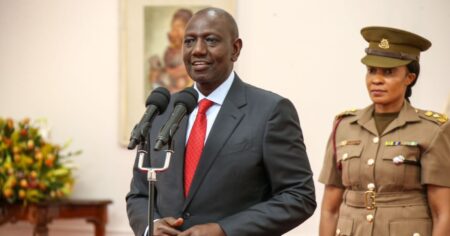

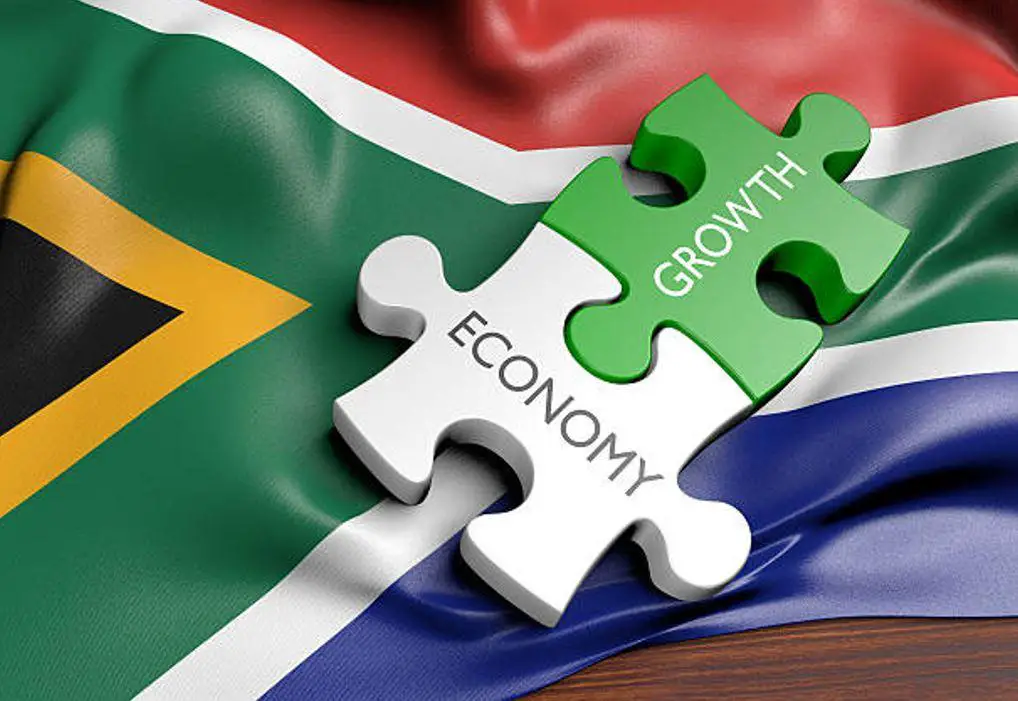
![Sectors to revive Angola’s heavily indebted economy Oil-extraction-in-Angola. [Photo: Financial Fortune]](https://theexchange.africa/wp-content/uploads/2022/10/ANgola.jpg)
